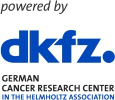Description
Relapse after allogeneic hematopoietic stem cell transplantation (allo-HCT) remains a major obstacle in the treatment of acute myeloid leukemia (AML), often driven by immune escape mechanisms. NRAS mutations, found in ~12% of AML cases, activate RAS-MAPK signaling and are frequently acquired late in disease progression, suggesting a role in immune evasion and post-transplant relapse.
Using a syngeneic transplantation mouse model with NRASG12D -transduced hematopoietic stem cells (HSCs), we show that NRAS activation upregulates CD73 on myeloid cells and suppresses T cell function—marked by reduced TNF-α, impaired CD4⁺/CD8⁺ proliferation, and increased Tregs. These immunosuppressive effects were largely reversed upon transplantation of CD73-deficient, NRAS-transduced cells, which also exhibited increased MHC class II expression
In an allogeneic model, NRAS-driven leukemia induced similar T cell dysfunction, including reduced effector proliferation and cytokine production. CD73 inhibition restored T cell effector function, increased granzyme B, enhanced memory differentiation, and further upregulated MHC-II.
MEK inhibition (Trametinib) reduced CD73 expression, enhanced T cell proliferation, and improved leukemia control in a recall immunity experiment, suggesting durable anti-leukemic memory.
Our findings identify CD73 as a central immune checkpoint in NRAS-mutant AML. Targeting CD73 and MEK represents a promising strategy to enhance post-transplant immune surveillance and prevent relapse
| Preferred type of presentation |
|---|

